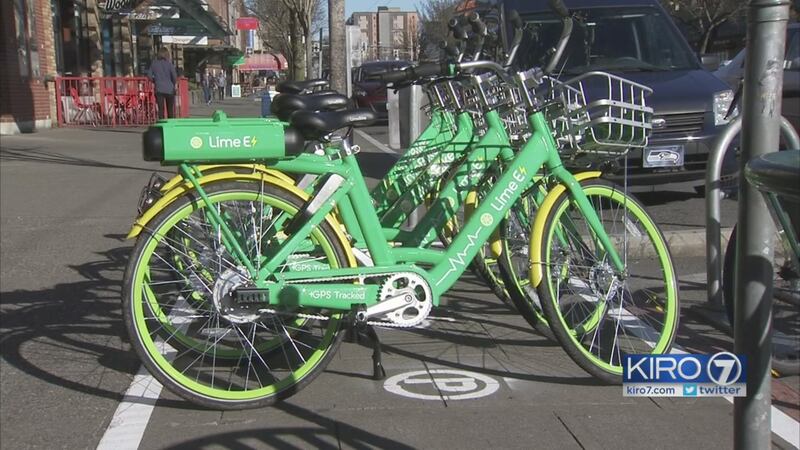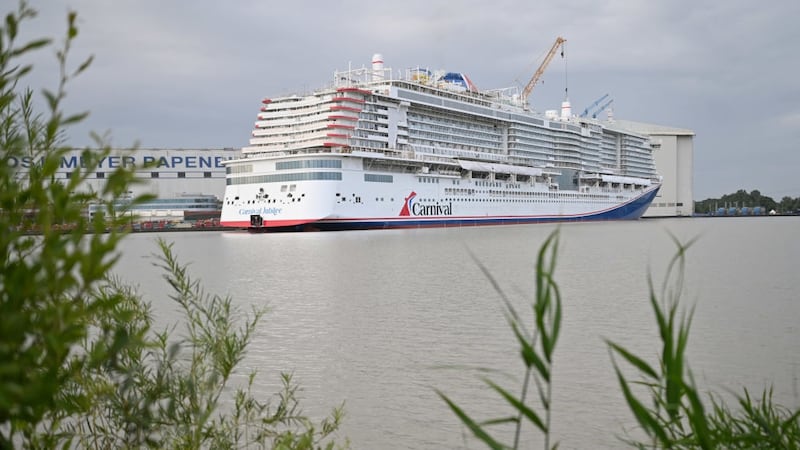BELLEVUE, Wash. — While it’s following in Seattle’s footsteps, the plan to open its streets to bikeshare companies is “uniquely Bellevue.”
According to proposed regulations, the current Bellevue bikeshare plan is much different than Seattle’s pilot. Bellevue will only allow electric-assisted bikes to be permitted, unlike Seattle’s standard bicycles. The bikes are also targeted at certain neighborhoods instead of citywide distribution.
“The bikeshare pilot permit described here is unlike any other — it is uniquely Bellevue,” Bellevue’s proposed regulations for bikeshares states. “… it permits private companies so the city is not involved in owning or operating the service but establishes regulations to keep the system in check and fees to cover any costs incurred.”
The Bellevue City Council will discuss proposed bikeshare regulations at its briefing Monday, March 19. Part of that discussion is letters in support and in opposition to the program. All three of the companies currently operating in Seattle wrote letters of support, including SPIN, Limebike, and ofo. An additional three bikeshare companies also wrote to Bellevue.
The three additional companies are:
- The Gotcha Group featured a mocked up gotcha bike in its letter to officials, with "City of Bellevue" printed on it.
- VBikes wrote that it would "like to join this movement" of bringing a bikeshare to Bellevue.
- Mobike's letter stated it is the world's first and largest dockless bikeshare company, and that it is eager to discuss how it can move into Bellevue.
Bellevue is designing its year-long bikeshare pilot quite differently than its neighbor across Lake Washington. At first, it will limit the bikeshare fleet size to 400 bicycles at launch — divided evenly between all companies. Only electric-assisted bikes are allowed — not standard bikes.
Limebike already launched its Lime-E bike in Seattle. SPIN has promoted its electric-assisted bike but has not launched the model in Seattle.
Also included in the proposed Bellevue bikeshare rules:
- Service is allowed citywide, but distribution will target activity centers and transit connections.
- Operators will "rebalance" 3/4 of their bikes to activity centers each night. Operators are required to create disincentives for customers who park improperly.
- Bellevue will have painted areas designated for preferred parking — bike hubs. This is similar to what Seattle is experimenting with in Ballard. Operators must rebalance half of their fleets to these hubs.
- Bike hubs may be installed on private property if owners want them. The proposal displays a photo example of a hub at a Microsoft office.
- Bellevue will use geofencing to create "no parking" around park space.
- Bikeshare operators must obtain affirmation that riders have their own helmet. Bellevue has issued citations for not wearing a bike helmet in the past, but it is not among the King County cities that have issued the most.
The bikeshare rules for Bellevue also state the city may need more than the 400 bikes initially permitted. Therefore, companies are allowed to expand their fleet if they operate smoothly. Bellevue will accommodate a total of 1,200 bikes.
Cox Media Group








